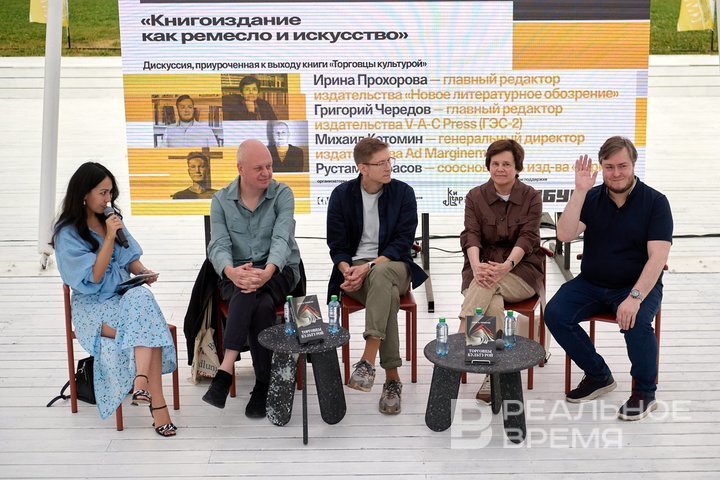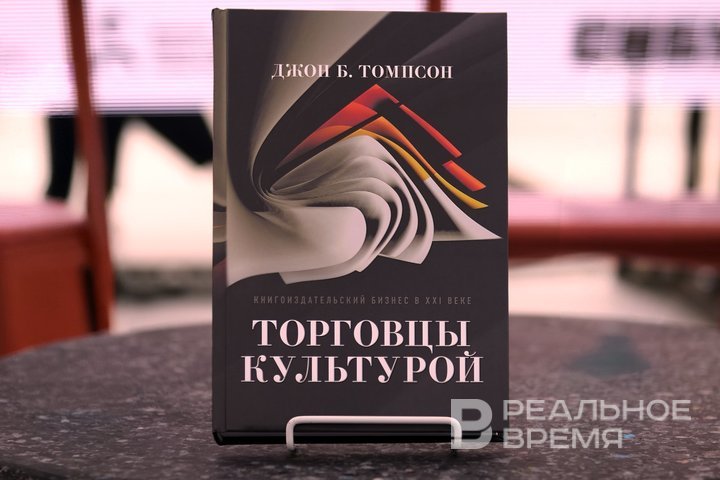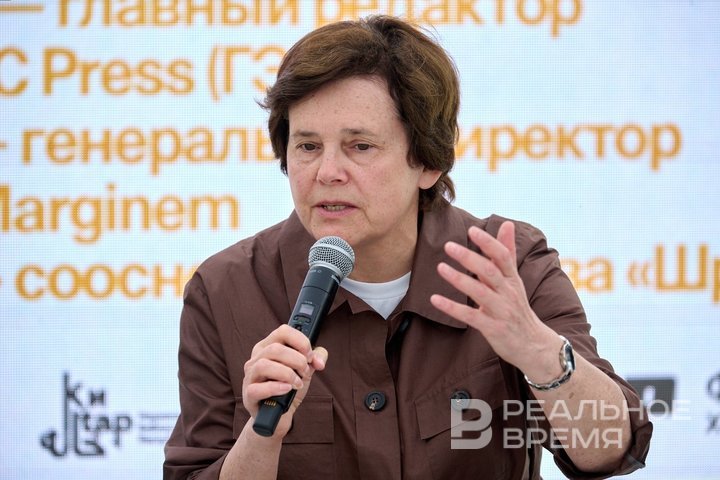What hurts publishers: between elite and mass literature, renovation of bookstores, and small circulation
How independent book publishing industry lives in Russia was discussed at Smena Summer Book Festival

Among book lovers, it is customary to conditionally divide literature into elite and mass. Although such a differentiation has long been considered literary snobbery. But with all the condemnation of the book community, this idea has stuck in people's heads. It is assumed that there is low literature, which is produced by large publishing groups, and the elite is handled by independent publishers. At Smena Summer Book Festival, they just discussed the difference between these two types of literature and also talked about how independent book publishing lives in Russia.
Talks about popular literature has nothing to do with real life
John B. Thompson in his book “Merchants of Culture” writes that the publishing world is a complex system of interaction between different floors of culture with a complex infrastructure. Besides the author and the publisher, there are many other people in this infrastructure: critics, literary agents, book distributors, etc. All of them are working to ensure that books, both elite and mass-produced, are created, visible to potential readers and sold. In this regard, there is no difference how to produce and sell elite and mass literature.

“These issues about the division of literature are typically Russian, which come from the Soviet idea that there is a high culture, and the rest can be ignored. At the same time, if you look at Soviet culture, it was mostly mass. And good elite books were often banned or almost unpublished and published in self-publishing. In this sense, if we are talking about the book market, which obeys the modern laws of book publishing, then there are different layers of the book world," commented Irina Prokhorova, the editor-in-chief of New Literary Review publishing house.
In modern book publishing, books are divided according to a different principle: specialised and professional, elite, which are designed for a trained reader, and entertaining. At the same time, the quality of literature does not depend on the category.

“The problem of trying to control, censor the lower level of literature ends with that the upper layer begins to wash away. Therefore, the development of infrastructure is more important here, where complex books find their readers, passing through a sieve of critics and information platforms. But endless conversations about why we need popular literature have little to do with the real life of the publishing world," Prokhorova added.
Any book can be elitist
The founder of Shrift publishing house, Rustam Gabbasov, believes that any text can be made elitist and vice versa. He suggests looking at the text as an unprocessed mass. For example, you can take a classic text and make a unique design for it. Then the publication of the well-known book will become elitist.

“One thing is impossible without the other: elite and mass culture exist in close relationship. Because any material can be published in different ways. You can take a super-complex, theoretically rich book and expand it in an understandable format. Or, conversely, take something banal and pop-cultural and try to present it as a serious anthropological or cultural study. This juggling opportunity is the most interesting thing for the publishing house," said Grigory Cheredov, the director of publishing programmes at the V-A-C Foundation and the GES-2 House of Culture.
“The distribution system in our country at the cave level”
The elitism of books can also be viewed from another point of view — not in terms of content, but in terms of circulation. For example, some publishers have books with a circulation of 300-500 copies. Then the owner of such a publication automatically becomes the owner of a literary rarity. But now is not the case when you need to “hunt” for a rare book. While the circulation has not finished, the publications are available to any buyer on the marketplaces.
The advent of the Internet has really changed the publishing world a lot. Realnoe Vremya has already wrote that traditional bookstores are losing their positions, their sales are falling, and marketplaces, on the contrary, are gaining more and more market every year.

“Just to survive, we had to master all the innovations at once, namely, take advantage of the digital revolution. Because we still suffer from the fact that the distribution system in our country is at the cave level. Therefore, independent publishers use all the possibilities of tools to ensure that books reach the reader. Although the potential of our books in circulation could be 5-10 times greater if the traditional distribution system worked at full capacity," Irina Prokhorova noted.
“For independent Western publishers, the main enemy is Amazon”
Mikhail Kotomin, the director general of Ad Marginem publishing house, supported Prokhorova's idea of the collapse of the traditional book distribution system. In Soviet times, there were book houses in every city. But then they started to close down.
“This infrastructure was destroyed. Large trading concerns that relied entirely on this infrastructure did not invest in it. They squeezed every last one of those stores that exist, did not invest in professional bookselling education. So we lived with this gradual decline until the appearance of life-saving Ozon and Wildberries for Russia," Kotomin said.

According to him, we are now witnessing an interesting situation. Independent bookstores have begun to appear on the ruins of the traditional book distribution system, which carried out a complete renovation of traditional bookstores. And this was overlaid by the emergence of a digital way of communication and marketplaces, which made the book available in small towns that have not seen bookstores in the last 30 years.
“Our situation is very different in this regard from the situation of our Western colleagues. For independent Western publishers, the main enemy is Amazon. At first, they offer publishers good conditions: sales begin to grow and, accordingly, circulation. And then Amazon, as the monopolist, twists the hands of publishers, increases the entry price and overhead costs. But in our country, due to the size of the country, Ozon and Wildberries have been entering the book market for 3-4 years. This period of positive influence of the digital structure of the book trade will be long. Because the country is big, and when Ozon reaches all of Siberia, a new revolution in the book business will take place," Mikhail Kotomin added.
Kotomin suggests that with the further development of marketplaces, it is possible to “recreate the large market that our country deserves”.
Ekaterina Petrova — literary reviewer of Realnoe Vremya online newsppaer, author of Poppy Seed Muffins (Булочки с маком) telegram channel, and founder of the first online subscription book club Makulatura.